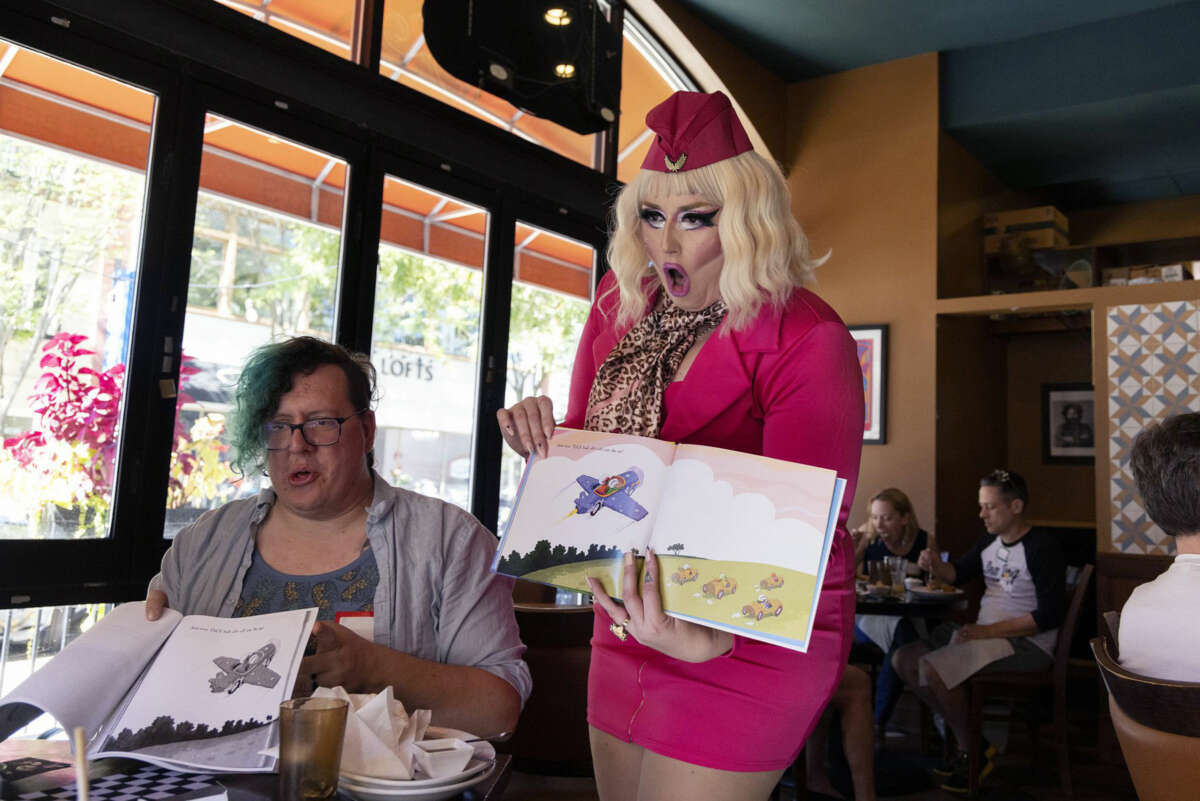Honest, paywall-free news is rare. Please support our boldly independent journalism with a donation of any size.
Amid a slew of anti-drag legislation marshaled by Republican lawmakers across the country, this month Tennessee became the first state to criminalize drag performers. On March 2, Gov. Bill Lee signed Senate Bill 0003 into law, banning “adult cabaret” performances — defined as “adult-oriented performances” that feature topless dancers, go-go dancers, exotic dancers, strippers and “male or female impersonators” — on public property.
Under the law, so-called adult cabaret performances are banned within 1,000 feet of schools, houses of worship, public parks, and other places where minors may see them, while those who violate the law are subject to a misdemeanor charge carrying up to a $2,500 fine and one year in prison. According to the bill, repeat offenders could incur a felony charge and carry one to six years of prison time with fines of up to $3,000.
The false rhetoric that lawmakers used to advance the legislation invokes the right-wing trope about “protecting children” from so-called sexualized entertainment, according to Governor Lee, with its sponsor, State Senator Jack Johnson, claiming the bill was designed to place an age restriction on drag shows and not eradicate them entirely. But performers like BenDeLaCreme have condemned this use of children as political pawns to forward a hateful agenda, telling MSNBC, “parents get to make their choices as to where to bring they bring their children, and there are many wonderful drag events that they can bring their children to.”
It’s clear the intention was never to “protect children,” but rather an effort to legislate queer and trans people out of existence. The same day that this ban on drag performance was signed, Governor Lee also codified a separate ban on gender-affirming health care for minors. Beginning on July 1, the law will prevent transitioning and nonbinary youth from accessing hormone therapy, surgeries, puberty blockers, and much more. Minors who are not already taking hormones before the law goes into effect this year will have until March 2024 to stop their treatments. Yet studies show that transgender youth — who already have among the highest rates of suicide and depression — have lower risk for suicide and depression when they can access gender-affirming health care.
LGBTQ+ advocates stress that the vague language in the anti-drag law will also be used to further criminalize trans and nonbinary people in Tennessee. Bella DuBalle, a drag performer and showrunner of the Atomic Rose bar’s Rainbow Brunch in downtown Memphis, told ABC24 that the legislation “makes very little distinguishment between a drag performer and a trans or gender non-conforming person.” Henry Seaton, a trans justice advocate at ACLU-TN, points out that the law’s “male and female impersonators” language is purposeful. “That can easily be a trans person. There’s the phenomenon of walking while trans, where specifically women of color … oftentimes get the police called on them just for being trans,” Seaton told WPLN.
Such broad language is present in several other anti-drag bills across the U.S., with 14 other states having introduced similar measures this year. In early February, Kansas introduced a bill that would criminalize drag in front of minors as “promoting obscenity”; the measure defines drag as when someone displays a gender identity different from the gender they were assigned at birth and “sings, lip-syncs, dances or otherwise performs.”
A bill recently sent to Arizona’s house will punish those who allow minors to view drag performances, while performers who do drag in front of minors could face at least 10 years in prison and would be registered as sex offenders. Meanwhile, Missouri introduced a bill that would criminalize engaging, organizing or authorizing the viewing of adult cabaret performances. The bill states that any school that engages in drag performances as part of its learning activities would lose state funding.
Despite this wave of hateful legislation, drag performers say the show will go on. From Drag Brunches to Drag Queen Story Hours and more, performers emphasize that drag is an art form designed to build and strengthen community, and to implement safe, loving spaces for individuals who may need that kind of visibility — including children. “If someone attempts to use this law to tell me that I cannot march in the pride parade and festival, I will not comply. If they attempt to tell me that I can no longer welcome children into our all-ages performance in this safe space, I will not comply,” Bella DuBalle said.
BenDeLaCreme states that drag is not only a celebration of the queer community, but a necessary manifestation of queer joy: “Seeing drag queens, seeing queer people, [and] people of other walks of life is essential [to] children who may see themselves in this … like it or not, your kids may need to see people like this out there. It may save their life. It may actually let them know that there is a future for them.”
Media that fights fascism
Truthout is funded almost entirely by readers — that’s why we can speak truth to power and cut against the mainstream narrative. But independent journalists at Truthout face mounting political repression under Trump.
We rely on your support to survive McCarthyist censorship. Please make a tax-deductible one-time or monthly donation.
